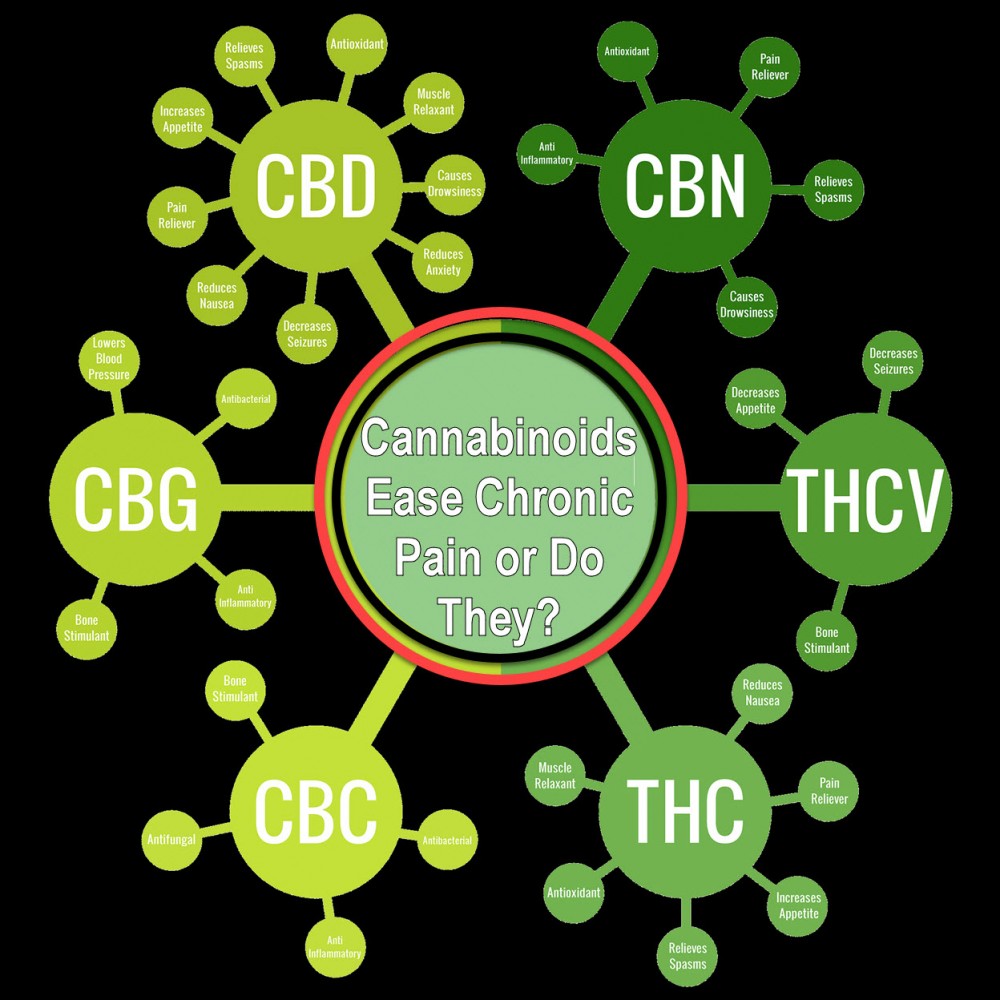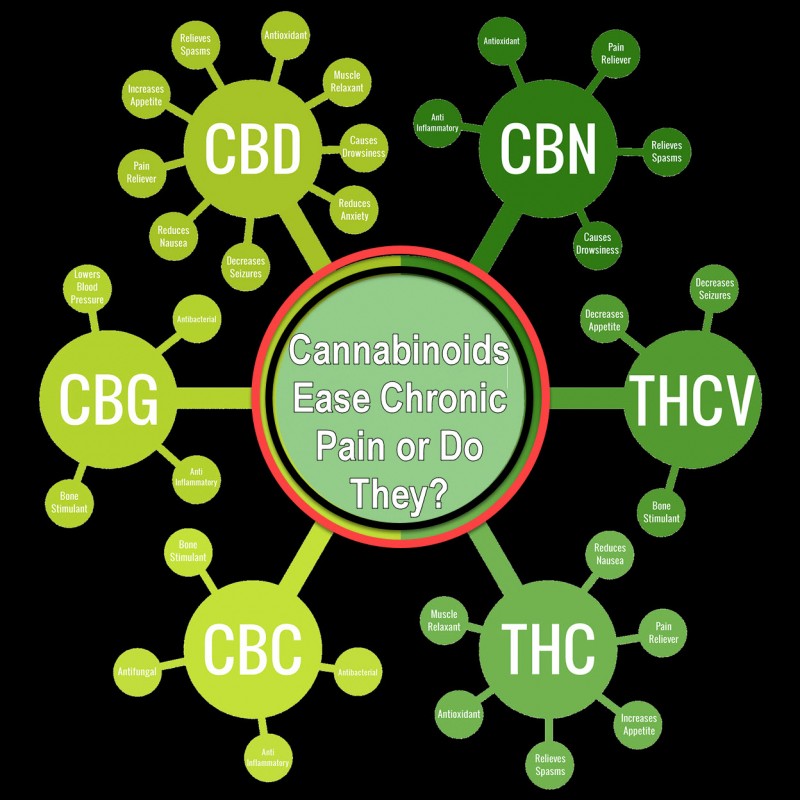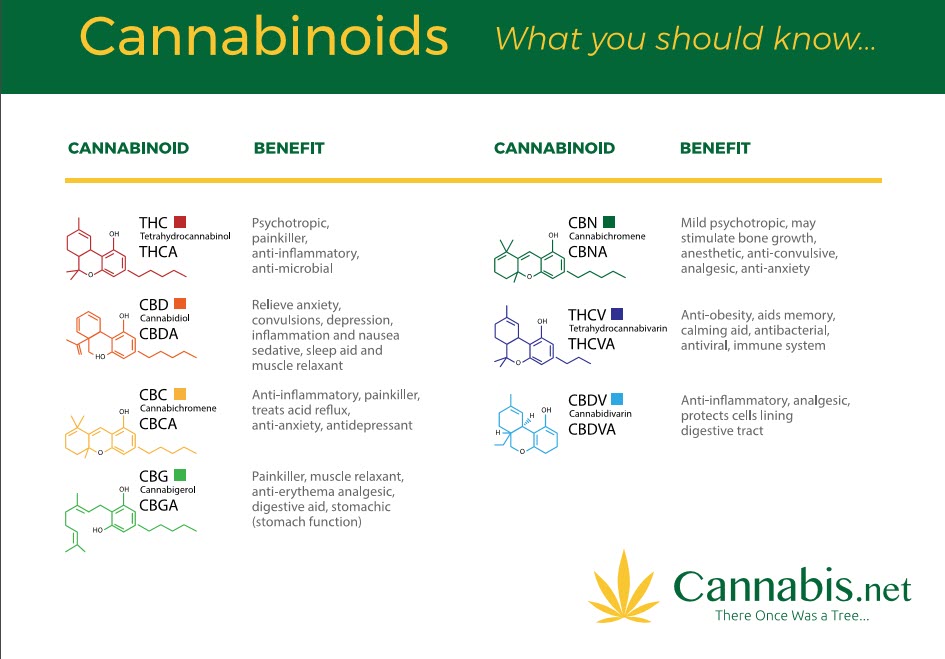Cannabinoids Ease Chronic Pain. Do They? by Blumentritt

One of the most widely enjoyed positive effects of cannabis is its ability to control pain. This could be minor pain, such as after a visit to the dentist, or a more severe type of pain when facing a chronic illness. The author has certainly had episodes in his life when cannabis had helped him to cope with pain, most notably after extensive dental work on a crown a few years ago, and many readers will have had similar experiences. But the question remains: is this effect actually real?
Why would I even question that, you might ask? Didn’t I just admit to using cannabis to ease the pain caused by that dental massacre in my lower jaw? Despite the pain relief observed during personal introspection, the easing of my pain might have had reasons other than the cannabis I consumed on my couch after coming back from the dentist: The pain might have subsided after a few hours anyway, and I had no way of knowing if I had actually felt better sooner without cannabis. The effect might also have been psychosomatic; the connection between the psyche and the body is strong in humans, and often patients report an improvement in their condition when given pills they believe to contain a medication, which however is only a sugar pellet without any active drug.
What is needed to exclude these possibilities are controlled studies. We need to compare a significantly large number of otherwise similar patients, one group given cannabis the other group given a control. The control can be the aforementioned sugar pellets or a different pain-killer, such as ibuprofen. Ideally, neither the patient nor the administering physician know who gets what – such a study is called a double blind study. All that together is the famed scientific method, the only reliable way to find objective knowledge.
And, even a single such scientific study might be flawed. Humans make mistakes, and medical researchers are humans. What we need to convincingly answer the question if cannabis can help against pain is a thorough comparison and evaluation of several individual scientific studies.
Mary Lynch and Mark Ware from the Dalhousie and McGill Universities in Canada published such a comparison of 11 different studies. These studies looked at the use of cannabinoids in chronic pain not caused by cancers, such as pain caused by multiple sclerosis, a serious nerve disease, or diabetes.
Four studies researched the pain-relieving effect of a synthetic substance similar to cannabis, named nabilone. It turned out to work better than ibuprofen or placebos, both in reducing pain as well as in improving sleep quality of the patients. Oral cannabis sprays also improved the pain levels of patients suffering from nerve damage. Again, patient sleep was improved – no small deal, since proper sleep generally improves recovery.
One study also looked at nerve-damage caused pain caused by chemotherapy – typically a form of pain very hard to treat. The results showed no significant improvement when analyzing the study as a whole (including all patients) – but more than a quarter of the patients reported that they felt less pain. This might be a fruitful avenue to explore in further studies!
When investigating any kind of medication, taking a close look at the side effects is always important. In this regard, cannabis and synthetic cannabinoids did very well. Opiates, another class of pain killers, can cause addiction and are likely to result in unpleasant constipation. In contrast, the side effects seen when patients took cannabinoids were mild: drowsiness, fatigue, dizziness or a dry mouth. In the many hundred patients surveyed in all the studies reviewed, only a few experienced serious side effects, such suicidal thoughts; these side effects disappeared promptly when the patients stopped taking their medications.
The scientists conclude that “Currently available cannabinoids are safe, modestly effective analgesics [pain killers] that provide a reasonable therapeutic option in the management of chronic non-cancer pain.”. Science has confirmed what intuition and introspection of many pain patients had suggested: Cannabis works well against chronic pain.
1. Lynch, Mary E., and Mark A. Ware. "Cannabinoids for the treatment of chronic non-cancer pain: an updated systematic review of randomized controlled trials." Journal of neuroimmune pharmacology 10.2 (2015): 293-301.
WHAT ARE CANNABINOIDS, READ THESE...
WHAT ARE CANNABINOIDS, CLICK HERE.
OR..
CANNABINOIDS THAT INTERACT WITH THE BODY THE MOST









